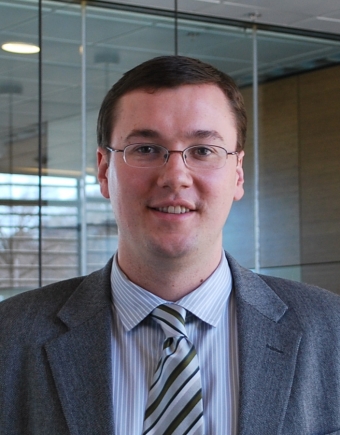
Date:
Location:
Title:
abstract
The degree of crystallinity, as well as the dimensions and orientation of crystalline domains, have important effects on the characteristics of organic electronic devices including photovoltaics, transistors, sensors, and light emitting diodes. While considerable effort has been devoted to controlled packing of conjugated organic materials on the molecular scale, and on deposition and annealing methods to tune crystalline structure, comparatively little work has focused on solution assembly of well-defined nanoscale structures that can subsequently be used as building blocks for device fabrication. Motivated by the desire to tailor structure and electronic properties of conjugated organic materials, our group has studied approaches to crystallization-driven assembly based on poly(3-hexyl thiophene) (P3HT). While P3HT is well known to form nanofibers upon crystallization from solution, we have focused on approaches to control the nucleation and growth of these nanostructures, as well as to assemble nanofibers bearing reactive groups that allow for crosslinking and chemical functionalization. In addition, we have discovered that P3HT serves as a crystal modifier during growth of small conjugated molecules, for example perylene diimides, thus providing a means to control crystal dimensions and to form hybrid crystal structures with anisotropic ambipolar charge transport characteristics.
bio
Ryan Hayward is a Professor of Polymer Science and Engineering at the University of Massachusetts Amherst. He received degrees in Chemical Engineering from Princeton University (B.S.E, 1999) and the University of California, Santa Barbara (Ph.D., 2004), and was a post-doctoral fellow in Engineering and Applied Sciences at Harvard University from 2004-2005. His group’s research covers a variety of topics in polymers and soft materials, with a focus on thin films and interfaces. Recent areas of interest include swelling-induced deformation of constrained and micro-patterned stimuli-responsive gels, and solution state self-assembly of polymer and particle-based nanostructures. Ryan has received several awards, including the Presidential Early Career Award for Scientists and Engineers (PECASE), the 2013 Journal of Polymer Science Innovation Award, and the 2014 John H. Dillon Medal of the American Physical Society. He serves as Associate Editor for the journal ACS Macro Letters.
Hosted by Omar Saleh. Part of the Fall 2015 Joint Colloquium of the Materials Department and Materials Research Laboratory. Join us for pizza after the lecture. Download event flyer.



